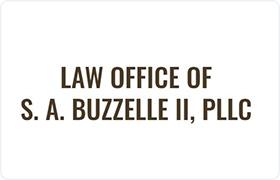Buckeye Collection Lawyer, Arizona
Sponsored Law Firm
-
 x
x

Click For More Info:
-
Law Office of S.A. Buzzelle II, PLLC
14050 N 83rd Avenue Suite 290 Peoria, AZ 85381» view mapBankruptcy & Debt Law Your Trusted Bankruptcy Attorney
If you are in need of legal services for matters relating to bankruptcy and divorce, rely on Law Office of S. A. Buzzelle II, PLLC in Peoria, AZ.
800-873-4991
Michael J. Fuller
✓ VERIFIEDEstate, Collection, Business, Contract, Litigation
In 1988, I started my own firm without any clients but with a steadfast commitment to practice law consistent with my own ideals and personality. I tr... (more)
Tejay Everett Ray Coon
Litigation, Family Law, Civil Rights, Collection
Status: In Good Standing Licensed: 7 Years
Afshin Afsharimehr
Collection, Mass Torts, Personal Injury, Motor Vehicle, Disability
Status: In Good Standing Licensed: 10 Years
L Timothy Fleming
Public Law, Government, Contract, Collection
Status: In Good Standing Licensed: 32 Years
L Timothy Fleming
Government, Contract, Collection, Electronic Commerce
Status: In Good Standing Licensed: 32 Years
 Stanley A. Buzzelle II Peoria, AZ
Stanley A. Buzzelle II Peoria, AZ Practice AreasExpertise
Practice AreasExpertise

